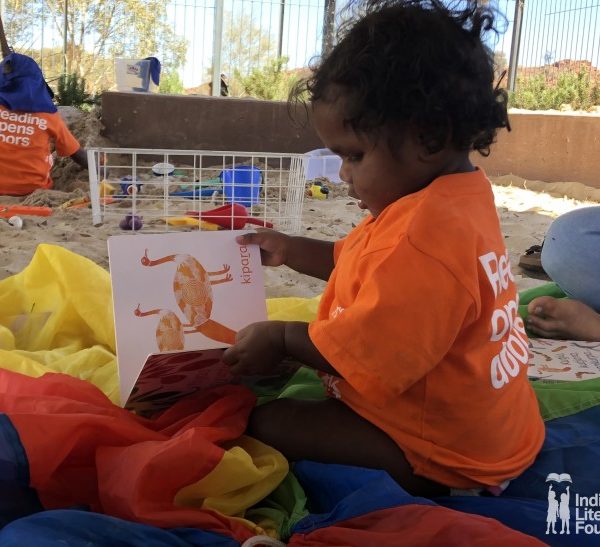One million books delivered through ILF’s Book Supply program to remote communities

The Indigenous Literacy Foundation (ILF) has delivered its one millionth book to a remote community, marking a major milestone in its Book Supply program, which supports access to culturally relevant books across Aboriginal and Torres Strait Islander communities throughout Australia.
Now in its second decade, the Book Supply program provides carefully selected books to more than 495 communities each year. Titles are chosen for their cultural relevance and representation, with more than half created by First Nations authors and illustrators.
A program built around community need
The program began in 2004 with a grassroots fundraiser and the donation of books to three remote communities. Since then, it has grown into a national initiative with strong relationships across states and territories.
This year’s deliveries included the one millionth book, celebrated in Katherine in the Northern Territory, a long-standing distribution hub for the program.
ILF Book Supply Manager Brad Gambetta said the high volume of orders in 2025 showed continued demand.
“Hearing from communities about the role these books play never gets old. One school shared how excited children were to receive stories in their own languages and about their own cultures. It reminds you why access matters,” he said.
The importance of connection and representation
For many in the community, receiving new books is more than a delivery. It is a moment of recognition and pride. Former coordinator and Katherine local Cindy Manfong said the joy on children’s faces when opening a new pack remains unforgettable.
“Seeing new books come out of the boxes, books that reflect who they are, that pride stays with you,” she said.
Each year, a committee of Aboriginal and Torres Strait Islander educators, community members, ILF staff and publishing professionals reviews and selects the books included in every pack.
Stories that spark engagement
Tina Raye, who led the ILF’s program work between 2013 and 2021, recalled a moment in the APY Lands that captured what the program is about.
“We laid out books like a pop-up bookshop and gave the children time to choose. One boy, described as a reluctant reader, eventually picked out a graphic novel by Brenton McKenna and did not look up for the rest of the day,” she said.
She also remembered a trip to the Tiwi Islands, where a young child was so eager to bring home a Guinness World Records book that a friend helped him carry it. “Those moments show what book choice can mean to kids in the bush,” she said.
“In city schools, books are everywhere. But in remote communities, programs like this can be the only way to build a personal library at home or a classroom shelf with new titles.”
Shaping the publishing landscape
The Book Supply program has also played a role in shifting Australia’s publishing industry. By consistently prioritising First Nations voices, ILF has helped foster demand and create new pathways for Indigenous authors and illustrators.
“Over time, I think this program has shown publishers and booksellers that First Nations stories belong in every classroom and every library,” Tina said.
“It has also given young people the idea that they can be storytellers too.”
The role of trusted delivery partners
Delivering to hundreds of communities each year would not be possible without the support of Australia Post, which joined the program as a national partner in 2020.
“Australia Post proudly supports the Indigenous Literacy Foundation by using its vast network to deliver the Book Supply program to 495 communities around Australia,” said General Manager of Community and Stakeholder Engagement Nicky Tracey.
Looking ahead
ILF CEO Ben Bowen said the scale of the milestone reflects years of consistent community partnerships and shared goals.
“Not long ago, we were talking about the absence of books in many remote communities,” he said. “Now, we are talking about home libraries, school libraries and generations of readers connected through stories.”
He said the foundation remains committed to long-term collaboration with communities.
“We are honoured to be part of this journey with so many people. And we know there is still more work to do.”
To read more about the milestone and the communities involved, visit the Indigenous Literacy Foundation’s official story.
Photo: Lisa Pilbeam, courtesy of the Indigenous Literacy Foundation
Popular

Quality
Provider
Policy
Practice
WA approved provider fined $45,000 over bush excursion incident
2025-07-01 07:00:01
by Fiona Alston

Workforce
Policy
Quality
Practice
Provider
Research
ECEC must change now, our children can’t wait for another inquiry
2025-07-02 07:47:14
by Fiona Alston

Workforce
Quality
Provider
Victorian man charged with over 70 child sexual abuse offences linked to Melbourne ECEC settings
2025-07-01 10:46:10
by Fiona Alston











